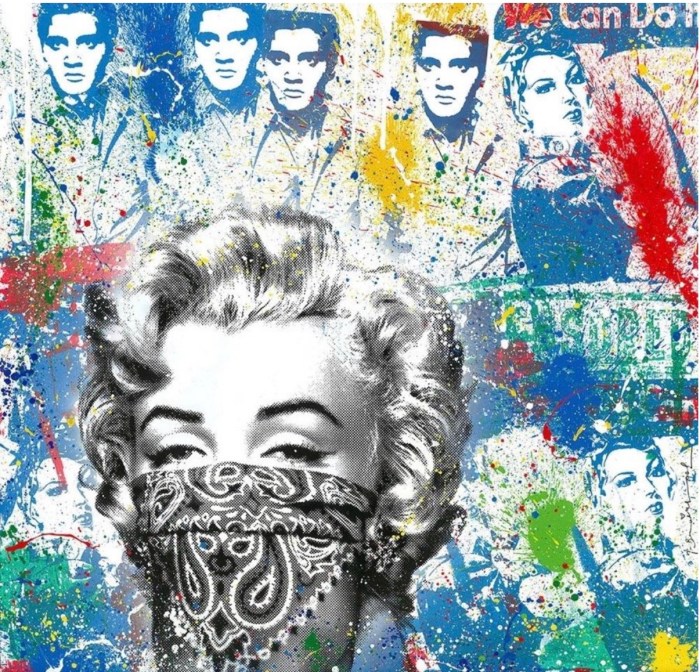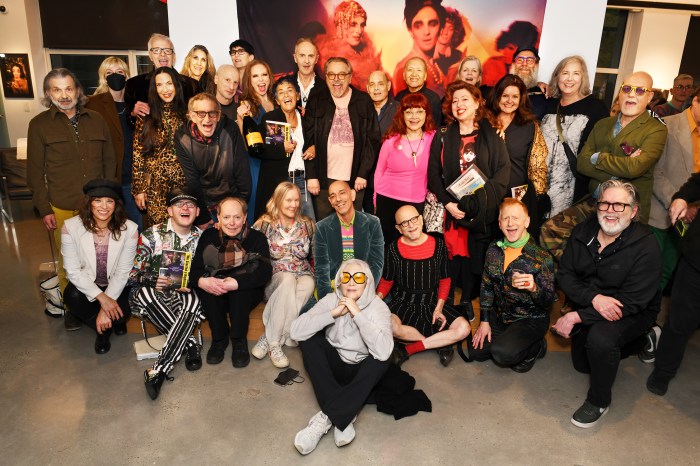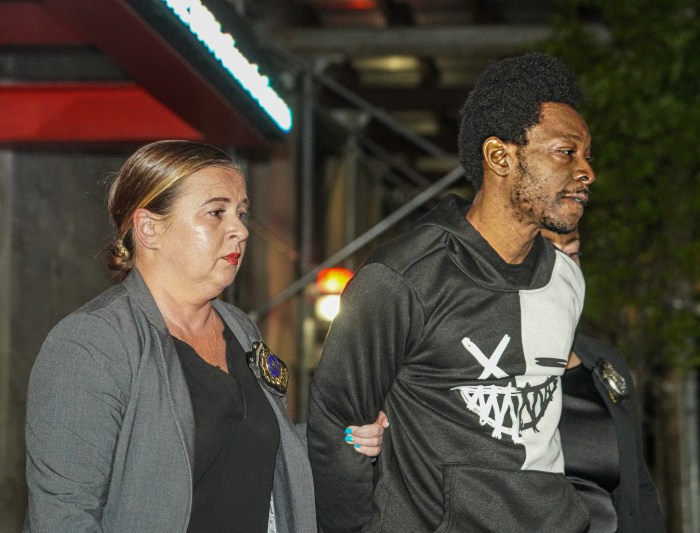By JERRY TALLMER
There’s almost too much happening right now in a small apartment a half-block off Washington Square.
Erin Cressida Wilson is in the process of writing a new movie for director Steven Shainberg, for whom she crafted the screenplay of “Secretary” — about an S&M workplace love affair — from a short story by Mary Gaitskill.
Screenwriter and playwright Wilson is also “on the 10th draft” of her first novel, title not yet determined, to be published by Simon & Schuster.
“Am I in it? Not really,” says the slim, compelling author.
Is there any sex in it?
“Oh, there’s lots of sex.”
Wouldn’t be by Erin Cressida Wilson if there weren’t.
She’s also in the process of rearranging her whole life between Greenwich Village and Providence, Rhode Island, because Brown University has just signed her on as a professor of Creative Writing in its English Department.
Make that between Greenwich Village and Providence, R.I., and West 42nd Street, because at Playwrights Horizons’ new Peter Jay Sharp Theater, 416 W. 42nd, everything is humming along toward an October world premiere of “Wilder,” an offbeat, evocative, magical, new musical that Ms. Wilson has nursed and nurtured out of a play of hers — “Cross-Dressing in the Depression” — that SoHo Rep did 11 years ago.
“Wilder,” with book and lyrics by Erin, music and lyrics by Mike Craver and Jack Herrick, is defined on its title page as “A New Chamber Musical & Love Story for three actors & two Red Clay Ramblers.”
Only one actor has been cast so far. John Cullum in the title role: Old Wilder, a character who looks back 60 years or so. The Red Clay Ramblers are Messrs. Craver on piano, and Herrick, the tall guy on bass fiddle.
A snippet of the script:
“It was the winter of breadlines,” says Old Wilder at the top of the show, summoning up the boy he once was, the Depression-era kid on his own — dad in jail, mom toiling somewhere as a maid — who spent his days and his nights in a freezing room in the attic of a whorehouse in Denver, Colorado.
“Franklin and Eleanor were in the White House, Maggie and Jiggs were in the funnies, and Prince Albert? He was in the can.”
“Back then the grocer made his payments on the Model T my Daddy sold him — not with money, but with carloads of cornflakes. And from then on, no food, no money, just cornflakes for breakfast, lunch, and dinner. And when we were out of cornflakes, we ate the wallpaper.”
“When I wrote the play,” says Ms. Wilson, “I was listening to Red Clay Ramblers music for Sam Shepard’s, ‘A Lie of the Mind.’ I was very inspired by their music for that — as well as for [Bill Irwin and David Shiner’s] ‘Fool Moon.’ It was my dream to make a musical with the Ramblers, but I thought they were so famous, they’d never work with me.
“Other composers strung me along, and eventually all said no. Finally, years afterward, Lisa Portes, who directed ‘Cross-Dressing’ and directs this show, introduced me to Jack Herrick. He read the play and said Yes, without blinking.”
Brown University Professor Erin Cressida Wilson, San Francisco born and Smith College educated, is herself the daughter of two professors of English who, lived through the Great Depression.
“At age 10 my father was on his own in Denver, Colorado. His father had been arrested for pretty much the same thing as in the play, selling the same Ford five times; his mother had to go to work as a maid where she couldn’t bring her son with her.
“That’s when my father went to live in an attic — in a boarding house, not a whorehouse. Some time later, when he had a job driving back and forth between Kansas City and Provo, Utah, changing the records on jukeboxes and attending to slot machines, it took him into lots of whorehouses.
“So ‘Cross-Dressing in the Depression,’ the play, and ‘Wilder,’ the musical, are about an older man’s memories of his youth — but really about me, the author, putting together bits and pieces of stories told me by my father; bits and pieces of my mother’s story as well.”
And the snow dome? Does that come from “Citizen Kane”?
“No, I actually hate that scene in the film, and I’m probably the only person ever born who doesn’t like that movie (Citizen Kane.) It’s like hating Shakespeare. I just like a snow dome, probably because it’s a tiny stage with a controlled proscenium.”
Have one as a child?
“No. As a matter of fact most of the things I write about are things I wish I had and don’t have, otherwise I don’t write about them. My parents had such a hard time, they still believe it’s the Great Depression.”
How about the cross-dressing?
“That’s slightly complicated,” says the playwright whose offerings have included “The Erotica Project’s Cunning Stunts” (a compilation of pieces, half by her, half by Lillian Ann Slugocki) and last year’s “The Trail of Her Inner Thigh.”
Fifteen years ago, or whenever it was that she wrote the “Cross-Dressing” play, she was, she says, “more naive and ignorant — and I actually thought that cross-dressing was a sexual act in which men and women traded clothing.
“I made it up! — basing that assumption on a Playboy spread I’d seen as a child in which the viewer looked through a keyhole at men and women exchanging clothing. I always thought that something essential in falling in love was a merging of genders and the self into one, and that that could be manifested in cross-dressing — which was all wrong.”
So she took “Cross-Dressing” out of the title of the musical, but left in the activity itself “because Wilder tries to change the world by becoming part of the world around him. That’s it.”
She finds it interesting that “Cross-Dressing in the Depression,” which was staged by SoHo Rep in 1992, “is, for one of my plays, produced around, here and there, relatively a lot. People weren’t scared to death by it. I think it’s not a coincidence that a play with a male protagonist should be my most successful play.”
That sounds like a feminist statement, Erin.
“Well, it is,” says the woman who only a few years ago, at the time of the “Erotica Project,” had declared, straight out: “I really love men, and I love the phallus.”
In the snow dome, where young Wilder has just picked up and put on the dress of an ice-skating girl who has casually told him: “I play the skin flute,” those are not contradictions.

















